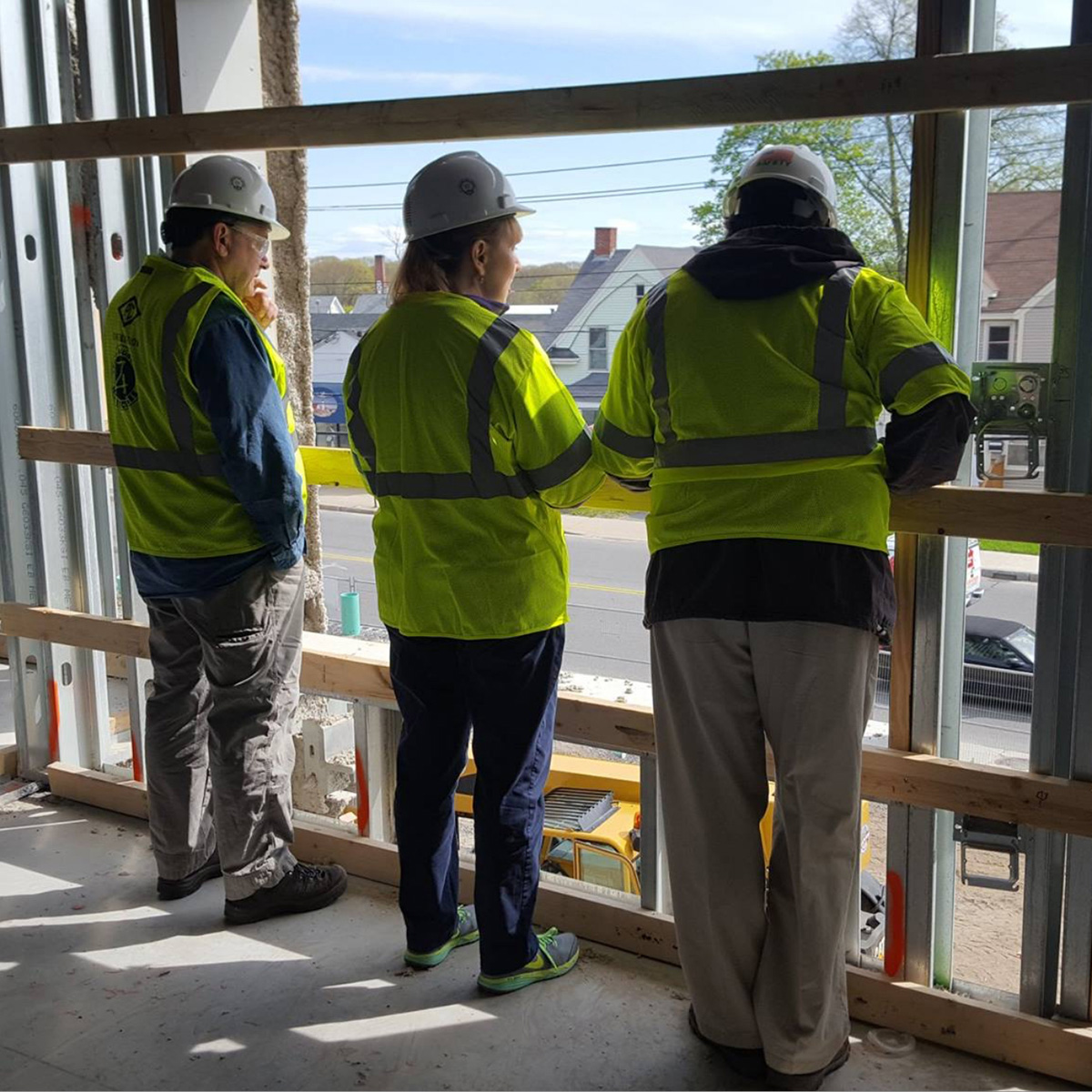News You’ll Want to Know
“Homeownership is the key to attaining generational stability. Education + starter home inventory provides a new pathway for our neighbors.”
Report Documents Investor-Driven Threats to Affordability in Mobile Home Communities
The report from the Genesis Community Loan Fund includes the latest data, suggests policy solutions, and offers successful models that protect this kind of affordable housing in other states.
BRUNSWICK, ME, April 8, 2025—With the Maine Legislature considering multiple bills that could shape the future of mobile home communities in the state, the Genesis Community Loan Fund has released a timely and in-depth report that underscores what’s at stake—and what can be done to preserve one of Maine’s largest sources of naturally occurring affordable housing.
Mobile Home Communities in Maine and the United States: A Valuable Source of Affordable Housing presents newly compiled data showing the real-world consequences of sales to out-of-state corporate investors.
- The report documents that, over the past decade, ownership of mobile home communities in Maine has shifted sharply away from local operators and toward national corporate investors and private equity firms.
- It reveals that since fall 2023, 28 parks with 2,163 home lots for Maine families have gone up for sale. More than 1,100 have been or are expected to be purchased by out-of-state corporate entities.
- Nationally, institutional investors accounted for just 13% of mobile home community purchases from 2017–2019, but that share jumped to 23% by 2020–2021.
These investors are drawn by the high returns possible from raising rents and fees and selling the community for a profit within a few years.
What are the results for residents? Steep rent increases, added fees, reduced stability, and declining home values. Most residents own their homes but rent the land beneath them.
“These are Mainers who worked hard to buy their homes and suddenly find them unaffordable because the land underneath is being used to maximize profit,” said Genesis Executive Director Liza Fleming-Ives. “Our report captures the scale of the issue and points to cooperative resident ownership and effective policy tools to protect these communities going forward.”
Genesis has presented the report to the Legislature’s Housing and Economic Development Committee, highlighting both the challenges of preserving the affordability of mobile home communities and the proven success of cooperative resident ownership as an alternative to the common results of corporate investment and ownership.
“This timely report from the Genesis Fund provides a clear picture of what is happening in mobile home communities across Maine and highlights the importance of actions by the Governor and Legislature to preserve these communities,” said Greg Payne, senior housing advisor in the Governor’s Office of Policy Innovation and the Future. “It provides state policymakers with a range of ideas to consider as we continue to collaborate to secure this essential source of affordable housing for the thousands of Mainers who rely on it.”
For more than 16 years, Genesis has provided financing to Maine residents who organize to cooperatively purchase and own the mobile home communities where they live—mobilizing millions of dollars in financing in partnership with other lenders and working with residents and New England’s Cooperative Development Institute.
To date, these efforts have resulted in 12 resident-owned communities housing 921 families, with monthly lot rent increases averaging less than $8 per year and home values retained or increasing.
Recent conversions to resident ownership cooperatives, including Blueberry Fields Cooperative in Brunswick and Cedar Falls Residents Cooperative in Bangor, have preserved the affordability of over 400 homes while leveraging more than $30 million in additional financing, demonstrating how modest public investment can unlock transformative, community-driven outcomes.
The report offers state-level solutions based on models already proving successful in other parts of the country. Its recommendations include:
- Strengthening Maine’s Opportunity to Purchase law, so resident groups have a fair chance to buy their parks when they go up for sale.
- Continuing and expanding the Mobile Home Park Preservation Fund, which provides critical gap financing.
- Offering tax incentives for sellers who choose resident or nonprofit buyers over private investors.
- Establishing a per-lot assessment on sales to large corporate buyers, to discourage speculative investor purchases and generate additional funding to help preserve mobile home communities.
- Considering rent stabilization measures specific to mobile home communities.
- Improving state oversight and data collection to better track trends and intervene early.
“This is a moment of opportunity,” Fleming-Ives said. “Lawmakers are considering multiple bills that will determine how these communities are owned and operated in the future. Our report brings forward the data, resident stories, and policy solutions that can help make sure we’re protecting some of the most affordable homes left in Maine.”

